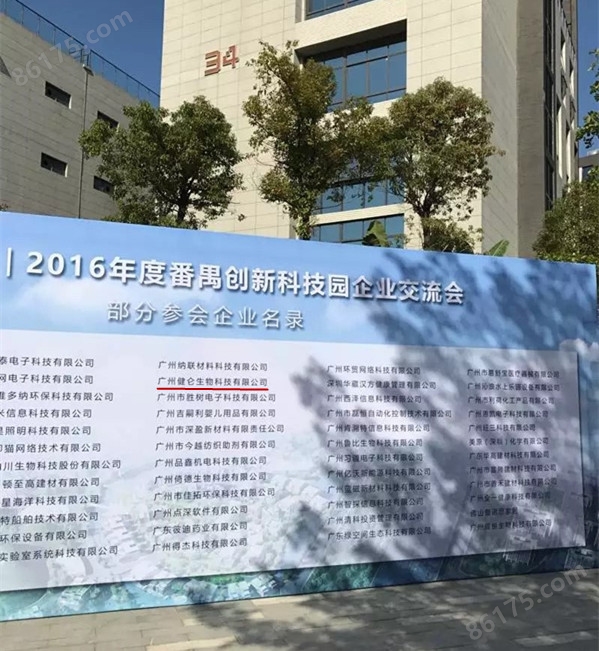請(qǐng)輸入產(chǎn)品關(guān)鍵字:
郵編:510660
聯(lián)系人:楊永漢
電話:86-020-82574011
傳真:86-020-32206070
手機(jī):13802525278
留言:發(fā)送留言
個(gè)性化:www.jianlun45.com
網(wǎng)址:www.jianlun.com
商鋪:http://www.xldjsj.com/st199246/
EB病毒早期抗原IgG免疫熒光玻片試劑盒
【產(chǎn)品簡(jiǎn)介】
【詳細(xì)說(shuō)明】
EB病毒早期抗原IgG免疫熒光玻片試劑盒
EBV Early Antigens IgG IFA Kit
廣州健侖生物科技有限公司
主要用途:用于檢測(cè)人血清中的EB病毒早期抗原IgG抗體
產(chǎn)品規(guī)格:12 孔/張,10 張/盒
主要產(chǎn)品包括:包柔氏螺旋體菌、布魯氏菌、貝納特氏立克次體、土倫桿菌、鉤端螺旋體、新型立克次體、恙蟲病、立克次體、果氏巴貝西蟲、馬焦蟲、牛焦蟲、利什曼蟲、新包蟲、弓形蟲、貓流感病毒、貓冠狀病毒、貓皰疹病毒、犬瘟病毒、犬細(xì)小病毒等病原微生物的 IFA、MIF、ELISA試劑。
EB病毒早期抗原IgG免疫熒光玻片試劑盒
我司還提供其它進(jìn)口或國(guó)產(chǎn)試劑盒:登革熱、瘧疾、西尼羅河、立克次體、無(wú)形體、蜱蟲、恙蟲、利什曼原蟲、RK39、漢坦病毒、深林腦炎、流感、A鏈球菌、合胞病毒、腮病毒、乙腦、寨卡、黃熱病、基孔肯雅熱、克錐蟲病、違禁品濫用、肺炎球菌、軍團(tuán)菌、化妝品檢測(cè)、食品安全檢測(cè)等試劑盒以及日本生研細(xì)菌分型診斷血清、德國(guó)SiFin診斷血清、丹麥SSI診斷血清等產(chǎn)品。
歡迎咨詢
歡迎咨詢2042552662

| JL-FL38 | parkeri立克次體IgG ELISA | R. parkeri IgG ELISA Kit |
| JL-FL39 | montanensis立克次體IgG ELISA | R. montanensis IgG ELISA Kit |
| JL-FL40 | EB病毒衣殼IgG免疫熒光玻片試劑盒 | EBV Viral Capsid IgG IFA Kit |
| JL-FL41 | EB病毒衣殼IgM免疫熒光玻片試劑盒 | EBV Viral Capsid IgM IFA Kit |
| JL-FL42 | EBV Early Antigens IgG IFA Kit | |
| JL-FL43 | 鉤端螺旋體IgG免疫熒光試劑盒 | Leptospira IgG IFA Kit |
| JL-FL44 | 鉤端螺旋體IgM免疫熒光試劑盒 | Leptospira IgM IFA Kit |
| JL-FL45 | 果氏巴貝西蟲免疫熒光玻片 | Babesia microti IFA Substrate slide |
| JL-FL46 | 果氏巴貝西蟲IgG免疫熒光試劑盒 | Babesia microti IgG IFA Kit |
| JL-FL47 | 果氏巴貝西蟲IgM免疫熒光試劑盒 | Babesia microti IgM IFA Kit |
| JL-FL48 | 埃立克體IgG微量免疫熒光試劑盒 | Ehrlichia canis Canine IFA IgG Kit |
| JL-FL49 | 包柔氏螺旋體菌IgG免疫熒光試劑盒 | Borrelia IgG IFA Kit |
| JL-FL50 | 布魯氏菌IgG免疫熒光試劑盒 | Brucella IgG IFA Kit |
| JL-FL51 | 里氏新立克次體IgG免疫熒光試劑盒 | Neorickettsia risticii IgG IFA Kit |
| JL-FL52 | 弓形蟲IgG免疫熒光試劑盒(檢測(cè)貓) | Toxoplasma IFA Feline IgG Kit |
| JL-FL53 | 弓形蟲IgG免疫熒光試劑盒(檢測(cè)狗) | Toxoplasma IFA Canine IgG Kit |
二維碼掃一掃
【公司名稱】 廣州健侖生物科技有限公司
【】 楊永漢
【】
【騰訊 】 2042552662
【公司地址】 廣州清華科技園創(chuàng)新基地番禺石樓鎮(zhèn)創(chuàng)啟路63號(hào)二期2幢101-3室
【企業(yè)文化】


起初,我們沒(méi)有獲得多大的成功,但在2005年,我們?cè)诩夹g(shù)上取得了突破。以前,我們實(shí)驗(yàn)室在培養(yǎng)干細(xì)胞時(shí),細(xì)胞只能平鋪在培養(yǎng)皿上,但在2005年,我們突破了“二維限制”,可以讓干細(xì)胞懸浮在培養(yǎng)液中,這就是“懸浮培養(yǎng)”。我們采用這種三維培養(yǎng)技術(shù)的原因有很多。首先,在懸浮培養(yǎng)中,細(xì)胞聚集時(shí),本身就會(huì)形成三維結(jié)構(gòu),因此在產(chǎn)生復(fù)雜組織時(shí),會(huì)比平鋪的細(xì)胞層更容易;其次,為了發(fā)育成復(fù)雜的結(jié)構(gòu),細(xì)胞之間需要相互交流,而三維培養(yǎng)更適于促進(jìn)這樣的交流,因?yàn)榧?xì)胞之間可以更加靈活地發(fā)生相互作用。
使用這種新方法,我們把相互分離的胚胎干細(xì)胞懸浮在液體培養(yǎng)基中,然后注入多孔培養(yǎng)皿的小孔中(每個(gè)小孔只有微量的培養(yǎng)基,含大約3 000個(gè)胚胎干細(xì)胞)。我們發(fā)現(xiàn),原本分開的胚胎干細(xì)胞開始聚集在一起。
隨后,就可以誘導(dǎo)這些微小的細(xì)胞聚集體,讓它們?nèi)糠只癁橐环N神經(jīng)前體細(xì)胞(neural progenitor)——這類細(xì)胞通常存在于大腦前部。然后,這些細(xì)胞開始相互發(fā)送信號(hào),經(jīng)過(guò)三四天的時(shí)間,它們便自發(fā)組織成中空的球體,由單層的神經(jīng)上皮細(xì)胞構(gòu)成(神經(jīng)上皮細(xì)胞即神經(jīng)干細(xì)胞,由前體細(xì)胞分化而來(lái))。我們把這種形成單細(xì)胞層的方法稱作SFEBq培養(yǎng)法,即“胚狀體樣聚集體的快速再聚集無(wú)血清懸浮培養(yǎng)法”(serum-free floating culture of embryoid body-like aggregate with quick reaggregation)。
在胚胎中,神經(jīng)上皮細(xì)胞接收來(lái)自細(xì)胞外的化學(xué)信號(hào),zui終形成特異的大腦組織結(jié)構(gòu)。在這些化學(xué)信號(hào)中,有一種信號(hào)可觸發(fā)間腦的發(fā)育,形成視網(wǎng)膜和下丘腦(hypothalamus,控制食欲和其他許多基本生理功能的腦區(qū))。成功地使胚胎干細(xì)胞形成球體之后,我們實(shí)驗(yàn)室開始嘗試,誘導(dǎo)這些細(xì)胞分化成視網(wǎng)膜前體細(xì)胞——成熟視網(wǎng)膜細(xì)胞的前體。我們向SFEBq培養(yǎng)體系中加入了一系列蛋白質(zhì)。在胚胎中,這些蛋白的作用正是誘導(dǎo)視網(wǎng)膜前體細(xì)胞的產(chǎn)生。
At first, we did not get much success, but in 2005, we made a technological breakthrough. In the past, when we cultured stem cells in our laboratory, the cells were only laid on the culture dish. However, in 2005, we broke through the "two-dimensional limitation" and allowed the suspension of stem cells in the culture medium. This is called "suspension culture." There are many reasons why we use this three-dimensional culture technique. First, in suspension culture, cells accumulate and form three-dimensional structures themselves, making them easier to produce complex tissues than tiled cell layers. Second, cells need to communicate with each other in order to develop complex structures , While three-dimensional c*tion is better suited to facilitate such exchanges because the cells can interact more flexibly.
Using this new method, we suspended the embryonic stem cells isolated from each other in liquid medium and injected them into the wells of a multi-well culture dish (with only a minimal amount of media per well containing approximay 3,000 embryonic stem cells). We found that originally separated embryonic stem cells began to congregate.
Subsequently, these tiny cell aggregates can be induced to differentiate them all into a neural progenitor - usually in the front of the brain. The cells then started to send signals to each other. After three or four days, they spontaneously organized into hollow spheres and consisted of a single layer of neuroepithelial cells (neural epithelial cells, neural stem cells, differentiated from precursor cells). We refer to this method of forming a single cell layer as the SFEBq culture method, that is, "serum-free floating culture of embryoid body-like aggregate with quick reaggregation" .
In embryos, neuroepithelial cells receive chemical signals from outside the cell, eventually forming specific brain tissue structures. Among these chemical signals, there is a signal that triggers the development of the diencephalon that forms the retina and the hypothalamus (the brain that controls appetite and many other basic physiological functions). After successfully bringing embryonic stem cells into the sphere, our lab started trying to induce these cells to differentiate into precursors of retinal precursor cells, mature retinal cells. We added a series of proteins to the SFEBq system. In embryos, the function of these proteins is to induce the production of retinal progenitor cells.

會(huì)員.png)
 QQ交談
QQ交談 MSN交談
MSN交談
